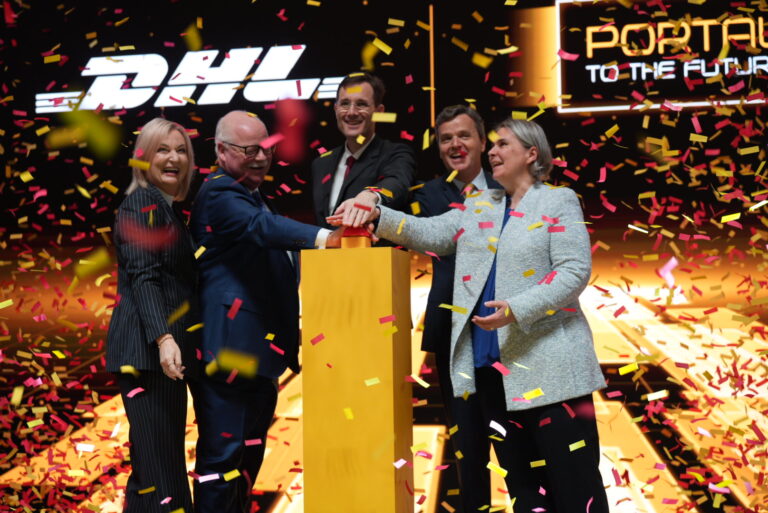DHL Group has officially opened its €180m (US$195m) international logistics center in Robakowo, near Poznan, Poland. The company claims the facility will enable it to deliver enhanced service quality and faster lead times for customers.
The 32,000m2 facility is one of Europe’s largest and most advanced centers for parcel sorting and logistics and includes 3,000m of conveyor belts with capacity for 45,000 parcels per hour.
This is a joint project between DHL eCommerce, Post + Parcel Germany and DHL Freight. DHL Freight will also operate a 4,170m2 terminal at the site dedicated to processing palletized shipments and less-than-container-load cargo for its Polish and European customers.
“With the new international logistics center, we are expanding our capacities and capabilities to meet the growing e-commerce shipment volumes,” said Tobias Meyer, CEO of DHL Group. “This facility, equipped with cutting-edge technology, will improve the quality of service, making it a distinctive addition to our European network. It will reduce transit times to many European markets, particularly between Germany and Poland, underlining our commitment to providing our customers with fast and reliable cross-border shipping services.”
In addition to international e-commerce and national Polish parcel volumes, the facility will handle shipments for Post + Parcel in Germany, including domestic volumes to and returns from Germany. The Poznan hub will have direct line-haul connections to all parcel hubs in Germany, Poland and many other European countries.
DHL eCommerce and Post + Parcel Germany will be able to handle a combined volume of 1,000,000 parcels daily during peak times.
The international logistics center was constructed in alignment with DHL’s sustainability strategy and has a photovoltaic system that provides one-third of the facility’s energy needs. The remainder is supplied by purchased green power, minimizing the use of fossil energy.
The facility also uses a variety of environmentally friendly transportation solutions, including electric trucks that move trailers and containers, eliminating exhaust and engine noise. There are also 40 charging stations for electric cars, vans and trucks and an automated traffic management system at entrances and exits to reduce vehicle waiting times and minimize noise and emissions.
For more logistics news, please click here.


